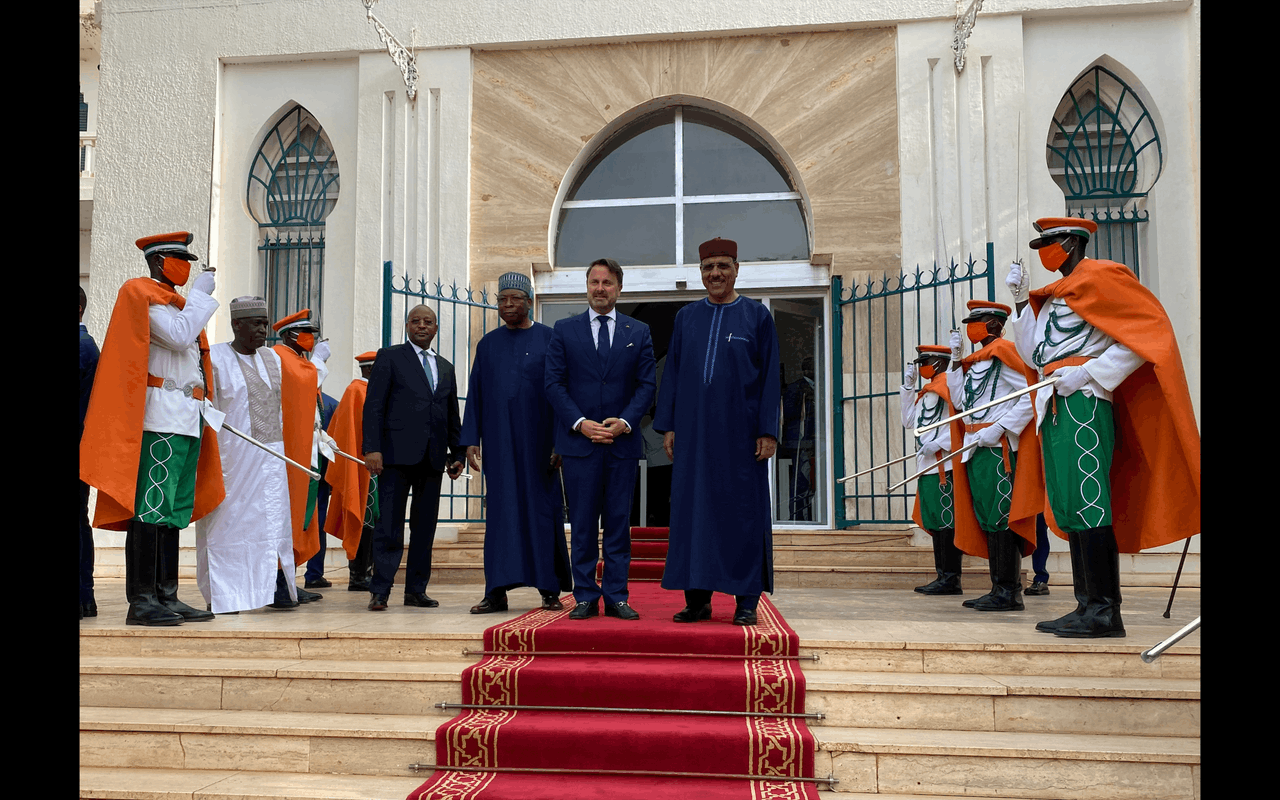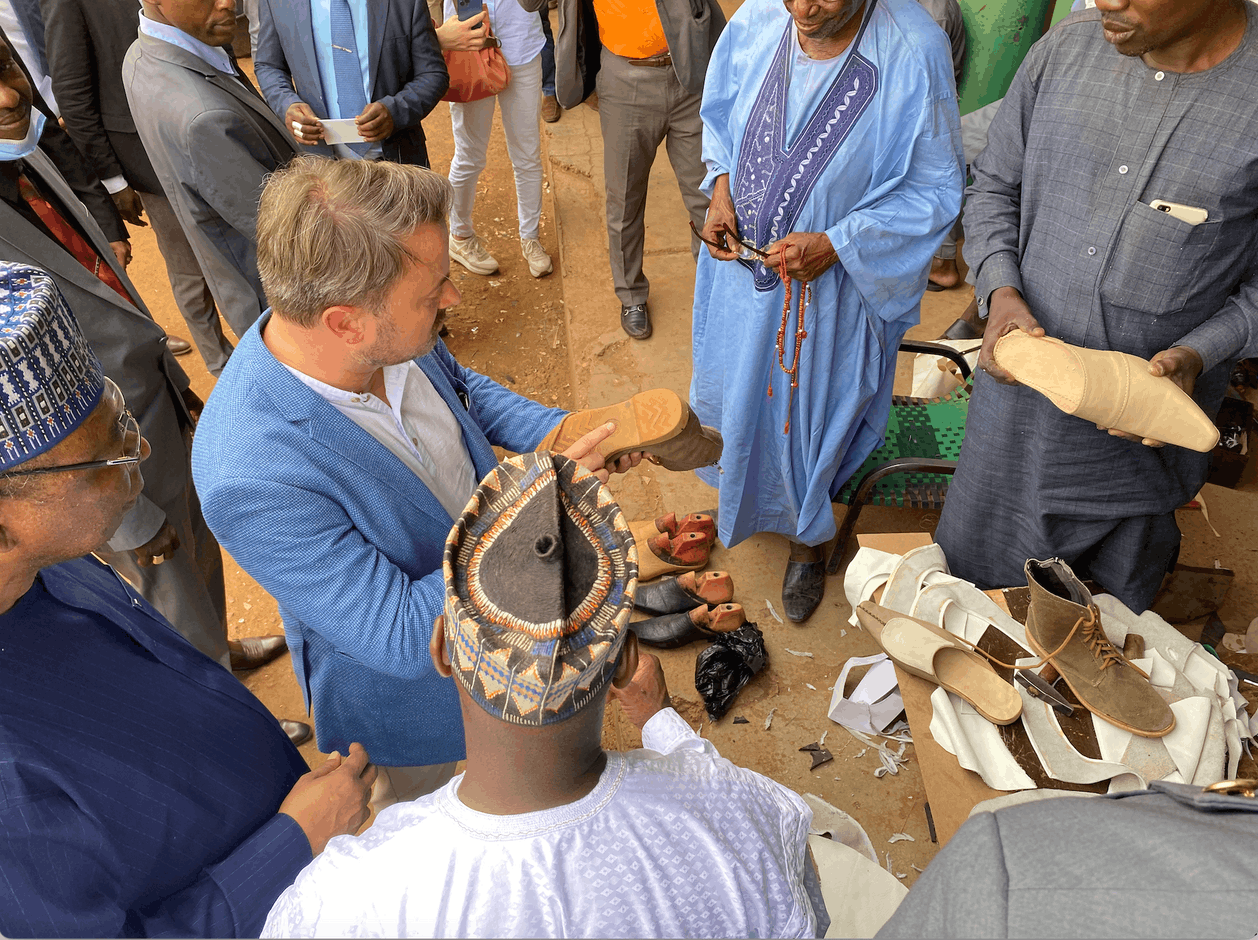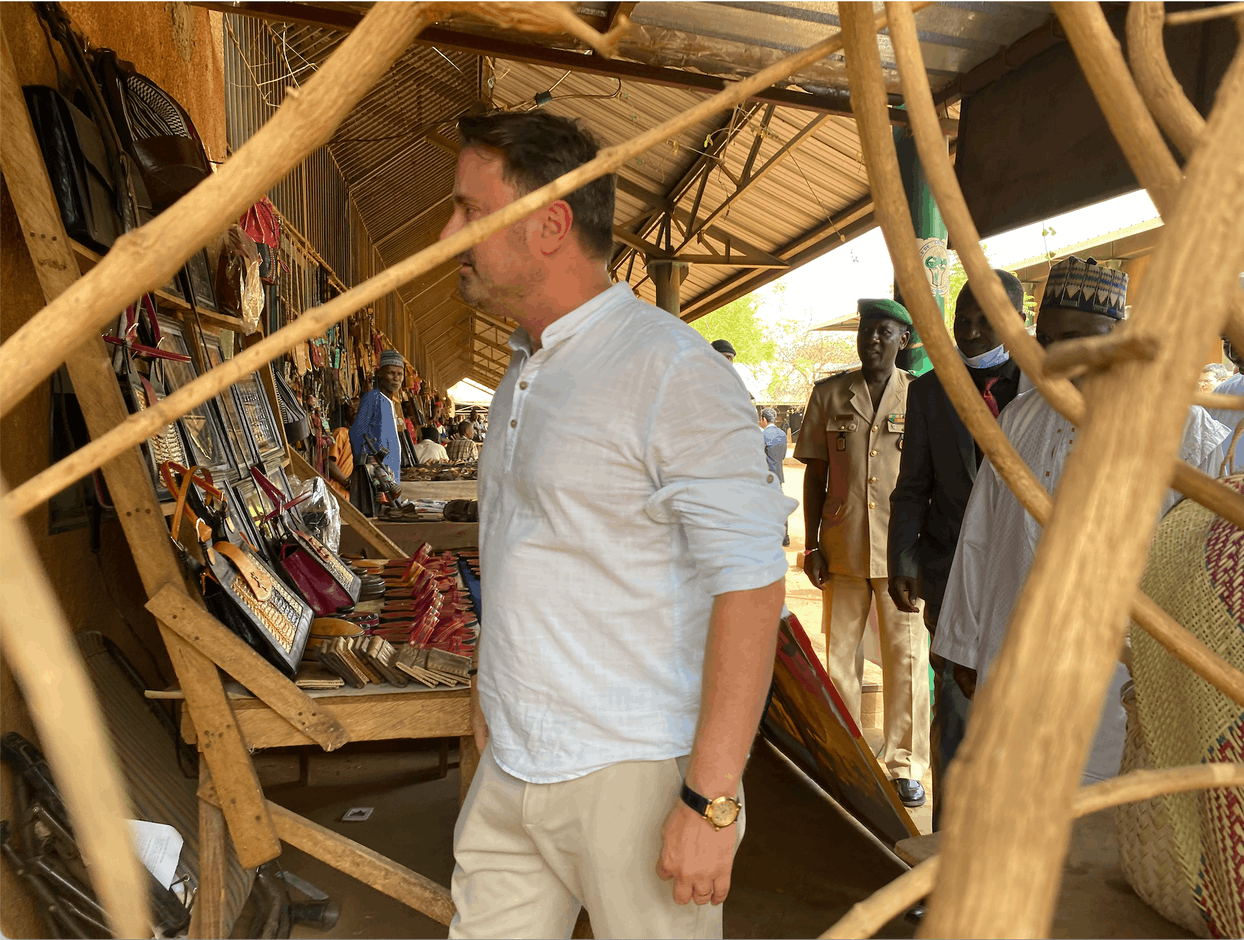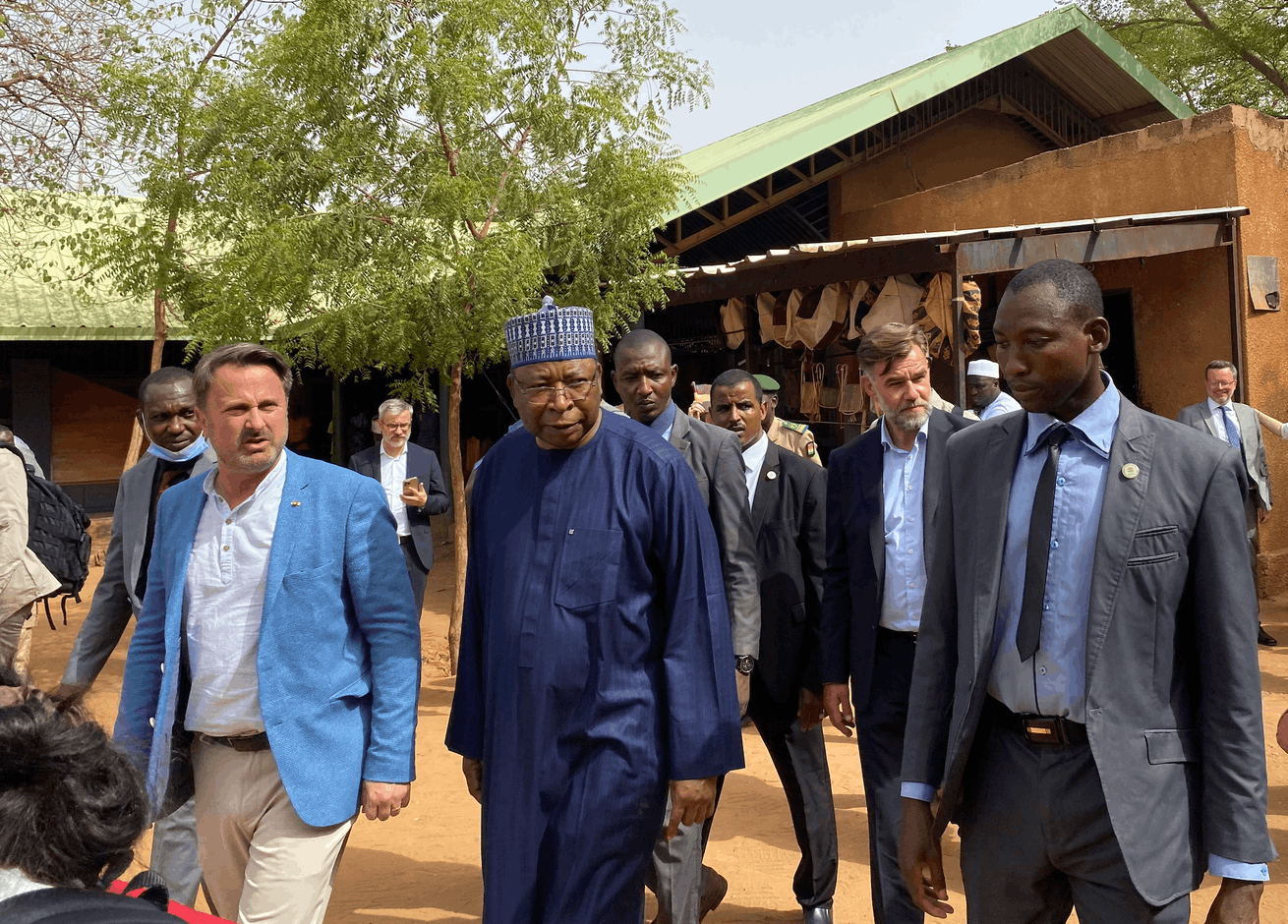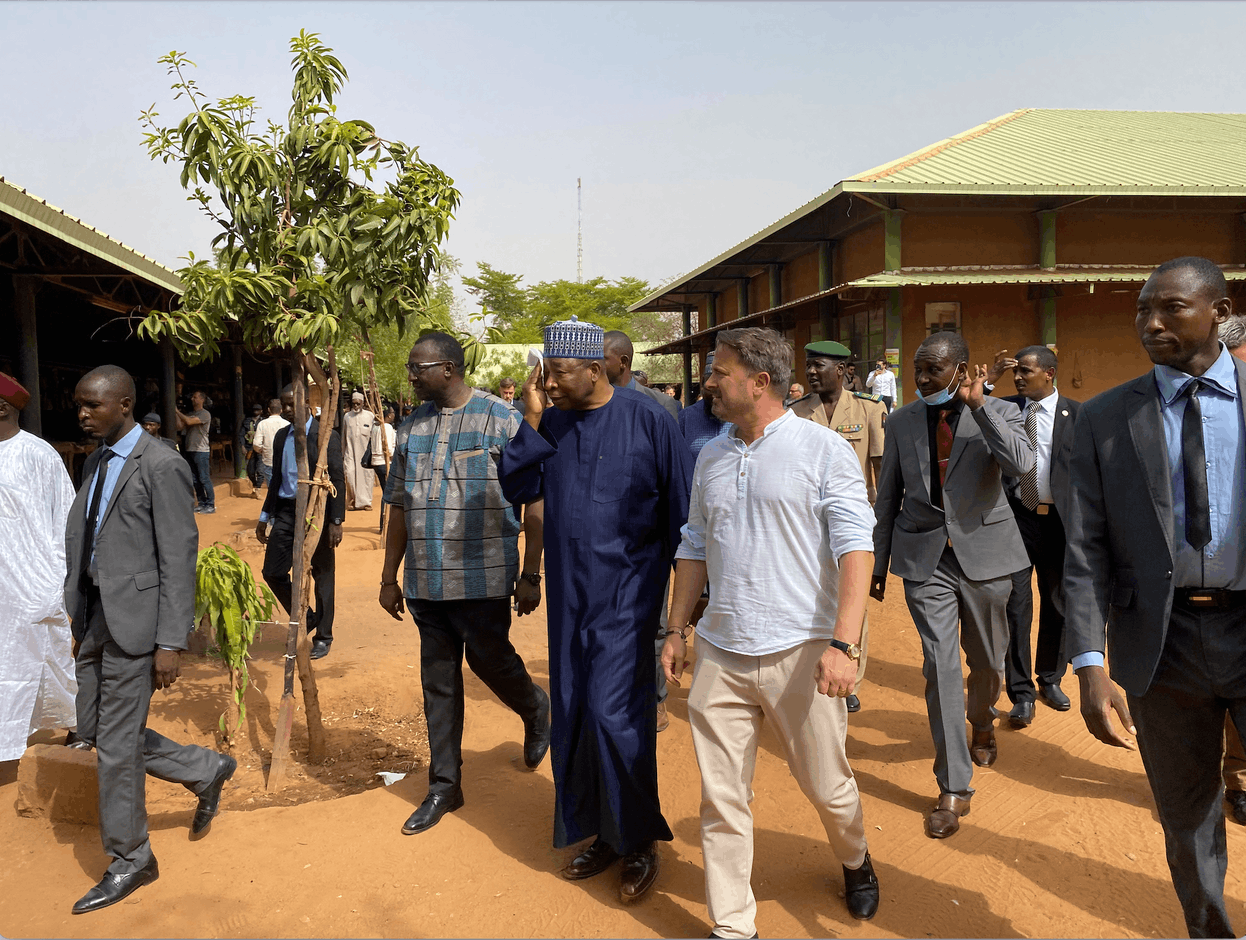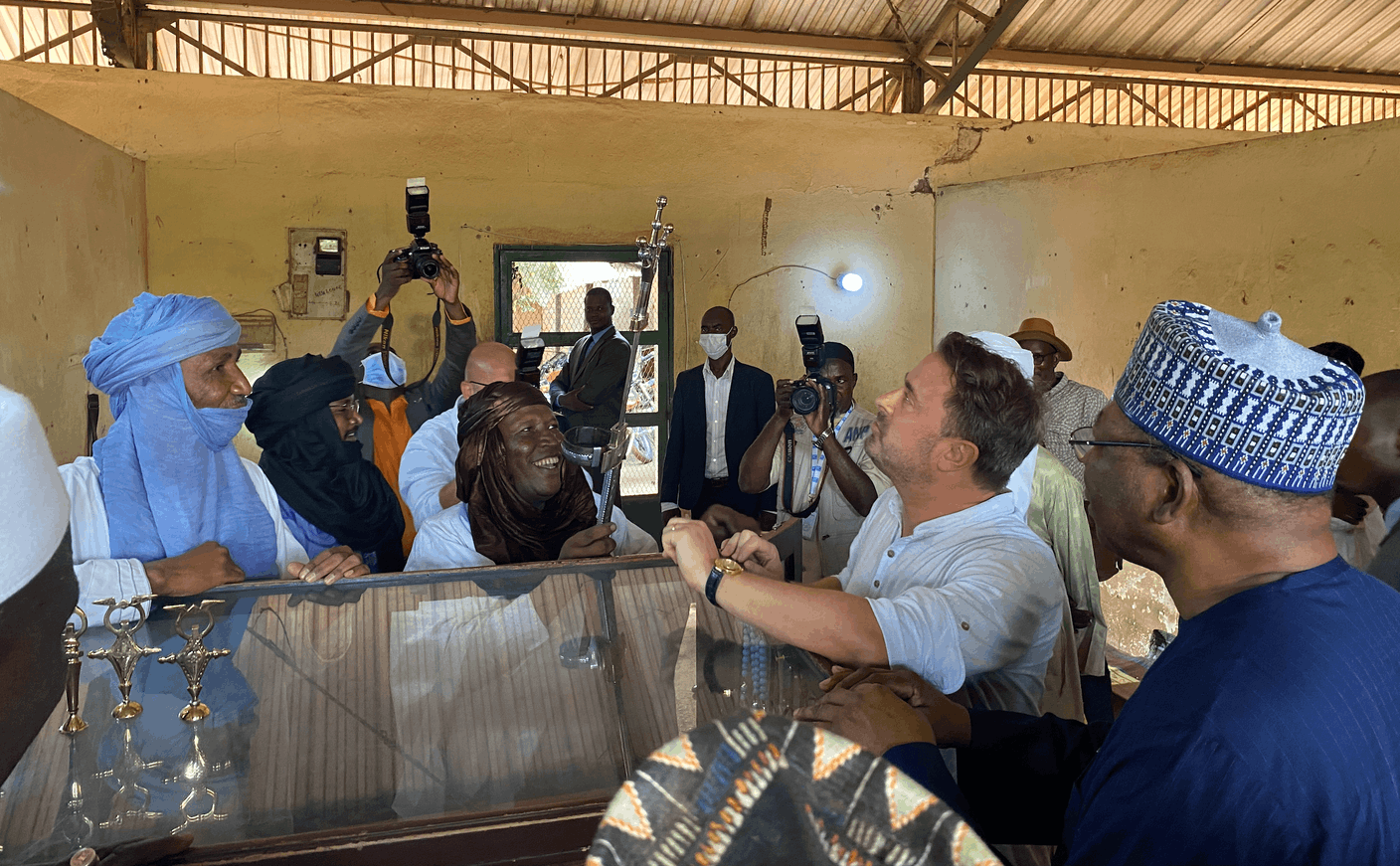The 38-person delegation, including 16 members of the Luxembourg government, 14 private sector officials and eight members of the press, was met with a festive welcome at the Diori Hamani International Airport in Niger’s capital. They made a first stop at the Wadata artisanal village before proceeding to the presidential palace, meeting with the LuxDev and Red Cross representatives in Niger, and joining a gala dinner to close the first day of engagements in Niger’s capital.
The timing of the Luxembourg delegation’s visit to Niger--a partner country in development aid since 1989—couldn’t have been more fitting. Niger is in the process of finalising its next five-year national development plan (2022-2026), which also coincides with the implementation timeframe for the recently signed indicative cooperation programme (ICP) that outlines Luxembourg’s development cooperation framework with Niger for the next half decade.
During bilateral exchanges between the Luxembourg delegation and members of the Niger government, both parties highlighted several priority areas for development cooperation, which mostly centres on easing the humanitarian and security challenges in Niger, which have been exacerbated by conflicts in neighbouring countries.
The president of Niger, Mohamed Bazoum, thanked Luxembourg for its investments in basic social services and applauded the grand duchy’s leading position in hydropower, digitalisation, microfinance, education and professional training, while underlining the role that new technologies, cybersecurity know-how and knowledge-transfers could play in the future of bilateral cooperation.
Prime minister Xavier Bettel (DP) explained that cooperation along the lines of defence alone would not be sufficient and reiterated that Luxembourg’s overarching 3D cooperation nexus (diplomacy, development, defence) will remain the main “key to success.”
“We see that for the moment some partner countries we had a few years ago are not the democratic ones we knew--like Mali, Burkina Faso--and Niger could be the next one. So, it is very important to support them through these 3Ds… Development is to give the young generations hope, education and a future and [this] is the best way to preserve them from extremism and from violent reactions. Diplomacy because we always need to speak, but also defence to protect,” Bettel told Delano on the sidelines of one of the meetings.
Luxembourg-funded artisanal village in Niger
The pertinence of the arts and crafts sector was also substantiated with a visit to the Wadata artisanal village in Niger. The crafts village which is a marketplace for local artisans was constructed between 1991 and 1992 and forms part of Luxembourg’s investments in the crafts sector in Niger.
Following the establishment of the village, investments have also gone towards assisting the growth and resilience of the sector with several associated projects that have supported the extension of the market to new sites, technical and financial assistance and support to artisanal cooperatives.
Development cooperation minister Franz Fayot (LSAP) explained that the project is a way to create jobs and promote vocational skills and crafts in Niger.
During the visit, Bettel could be seen engaging in discussions with the artisans in the different workshops and reviewing their products, which several of them offered to give as gifts. ‘How long have you worked here?’ ‘Did you make this?’ These were some of the questions the prime minister raised to get a more personal understanding of the impact of the projects and the situation with the workers.
“What we are doing is a combination of education, vocational training but also financial inclusion. This is a place where you have a really good transmission of know-how from one generation to the next. It's fantastic to see that that there are so many women that work here because it really is about the empowerment of people. That's the only way you can develop a country, by teaching people skills, encouraging the transmission of know-how, and making them independent,” said minister Fayot.
At the same time, he highlighted the need to create new markets where these products could be sold as there weren’t a lot of buyers around during the visit.
The marketplace houses some 500 artisans--including jewellers, leathersmiths and other craft makers of different age groups. About 40% of the workers in the villages are estimated to be women.
